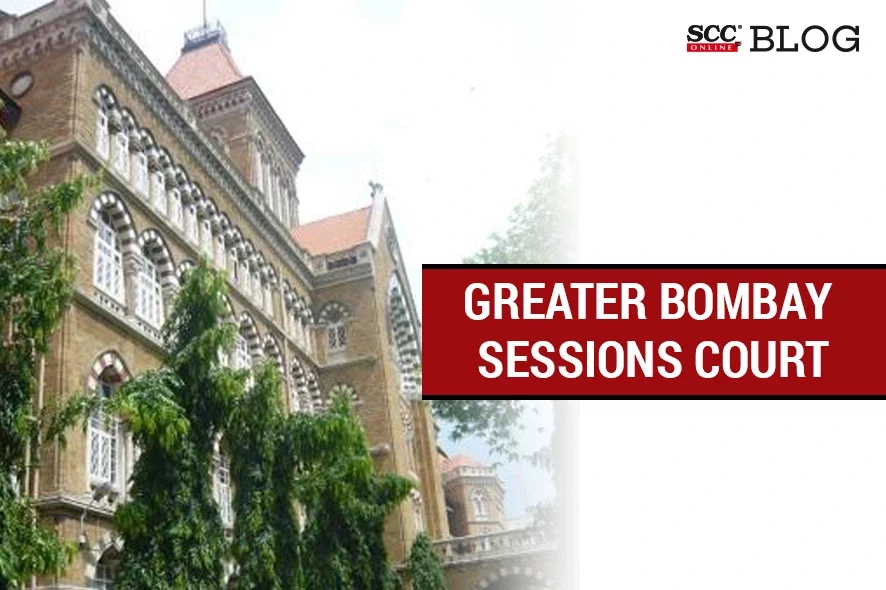Greater Bombay Sessions Court: In an appeal filed under Section 29 of Protection of Women from Domestic Violence Act, 2005 (‘DV Act’) challenging the order passed by Metropolitan Magistrate on 27-12-2022 granting monthly interim maintenance of Rs 10,000 to the wife, S.B. Pawar, Additional Sessions Judge considered the disproportionate income of the husband and wife and set aside the impugned order.
Facts of the Case
The appellant in the instant matter was the husband of the first respondent, whose marriage was solemnized on 10-11-1986 and respondent No.2 was their son. A complaint was filed by the wife under Sections 12, 18, 19, 20, 22 and 23 of DV Act against her husband and son alleging that they threatened and mentally abused her, as narrated through various instances.
The wife filed an application under Section 23 of DV Act seeking interim maintenance of Rs 75,000 per month which was partly allowed by the Trial Court ordering the husband to pay interim maintenance of Rs 10,000 per month to his wife. The said order was challenged in the instant appeal for being ‘contrary to the spirit and object of provisions of DV Act’ and that the Trial Court failed to consider that the wife was self-employed and could maintain herself, while the husband was unemployed without any income.
Court’s Analysis of Income for Maintenance
The Court in the instant appeal did not find the impugned order to be just, reasonable or legal which called for its interference to allow the instant appeal. The Court noted that both the parties had levelled allegations against each other, and the proof of such allegations was a matter of trial.
The Court highlighted the Trial Court’s observation that the husband’s income was Rs 3.5 lakhs p.a., while the wife had independent source of income, and directed the husband to pay monthly interim maintenance of Rs 10,000 per month. The wife had disclosed her income as Rs 40,000 per month and profession as self-employed, while not disclosing her income from other source and being ‘unaware’ of her husband’s assets and liabilities as per the affidavit.
The Court pointed towards the Income Tax Returns (‘IT Returns’) for assessment year 2021-22 wherein, the wife’s total income was shown as Rs 12,65,230, while her income was shown as Rs 89,35,720 in ITR for 2020-21, I.e., before filing the case under DV Act. The husband had shown his monthly salary of Rs 33,333 from the sole proprietary concern of his wife, and his ITRs for 2019-20, 2020-21 and 2021-22 reflected approximate annual income of Rs 3.5 lakhs. The Court looked at the facts, the recent differences between the couple and observed that the husband was no longer receiving any income from the business owned by his wife. In addition, the wife did not plead to the husband having any other independent source of income apart from her proprietary.
The Court pin-pointed the huge difference in income of the husband and wife, and that there was no documentary evidence to support the wife’s claims of being indebted. It further perused the Magistrate’s discretionary power to grant interim maintenance under Section 23 of DV Act and Appellate Court’s restricted interference with such orders unless such power was exercised arbitrarily, capriciously, perversely or while ignoring the settled principles of law. The Court observed that “Object of granting maintenance is to ensure that the dependent spouse is not reduced to destitution or vagrancy on account of the failure of the marriage.”
The Court listed the relevant factors for deciding quantum of maintenance as:
• Reasonable needs of wife;
• Independent source of income of wife;
• Insufficiency of the income of the wife to maintain the same standard of living as that of the husband in her matrimonial home;
• Financial capacity of the husband and his actual income
The Court explained that the wife had to show the lack of sufficient independent income to support her and achieve the standard of living as her husband. It further pressed on the Court’s duty to draw a just balance between all the relevant factors before passing order for interim maintenance. It was specifically noted by the Court that the income of parties was highly disproportionate in the instant case and the husband’s less income also ceased after differences grew between them.
The Court commented that the Trial Court failed to consider the wife’s sound financial position while passing the impugned order and granting interim maintenance in favour of the wife, which the Court viewed as against the settled principles of law and allowed the instant appeal, setting aside the impugned order.
[Miki T. Buhariwala v. Roxana M. Buhariwala, 2023 SCC OnLine Dis Crt (Bom) 10, decided on 9-08-2023]
Advocates who appeared in this case :
For Appellant: Advocate Omnil Jadhav;
For Respondent: Advocate Wadia.






